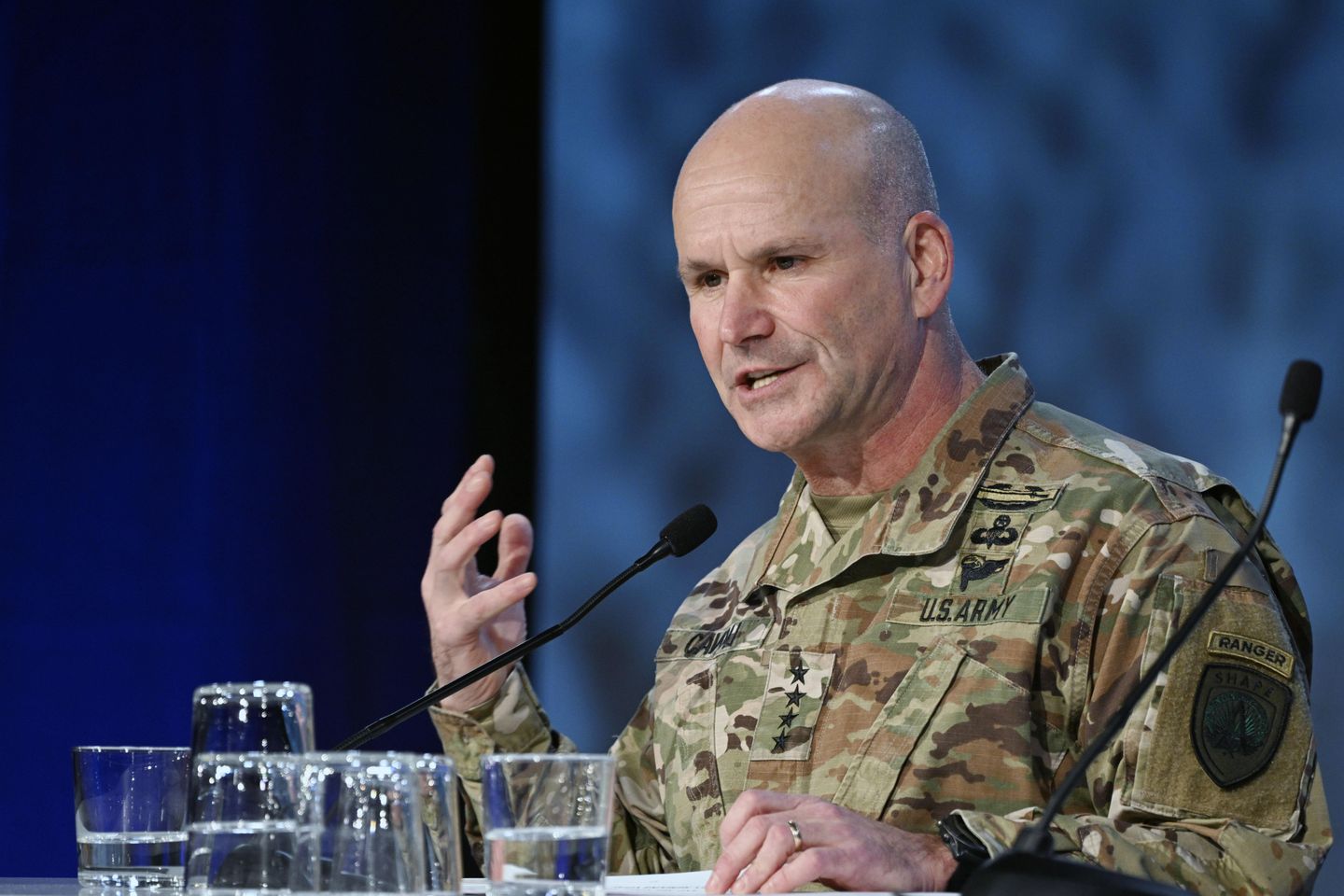
Republican and Democratic members of the House Armed Services Committee voiced sharp bipartisan criticism Tuesday about reports the Trump administration is eyeing a reduction of U.S. forces in Europe, saying America must stick with its NATO allies.
Rep. Michael Rogers, Michigan Republican, the panel’s chairman, said the U.S. must not cut troop levels in Europe and added that he was opposed to any plan for the U.S. to relinquish NATO command. The U.S. historically has held the Supreme Allied Command Europe, or SACEUR, position.
“U.S. leadership in NATO is essential to ensure armed American forces, including our nuclear weapons, always remain under U.S. command,” Mr. Rogers said at the start of a hearing with Army Gen. Christopher G. Cavoli, commander of U.S. European Command and the NATO commander.
Rep. Michael Turner, Ohio Republican, added that “the idiocy of the fact that there was any discussion” about giving up the SACEUR role “is just beyond me.”
Katherine Thompson, who is doing the job of assistant defense secretary for international affairs, repeatedly told lawmakers that there is an ongoing Pentagon review of troop totals and no decisions have been made. But, asked again two hours into the hearing whether the U.S. would give up the SACEUR job, she said, “my definitive answer is no.”
That was the first time Pentagon officials have flatly denied the U.S. will give up that post, which Gen. Cavoli said gives him a strong voice and American leadership at NATO.
There have been roughly 100,000 U.S. troops in Europe in recent years, a 20,000-troop increase since Russia invaded Ukraine in February 2022.
The general told the committee that he has recommended the U.S. maintain its current force totals. He said that cutting American troops in Europe will increase the time it would take America’s military to respond to any crisis there.
“Clearly moving things to the other side of the Atlantic increases the time-space challenge,” he said. He added that the current size and capability of the U.S. force, aided by allied contributions, “is deterring Russia” right now.
Asked by Rep. Don Bacon, Illinois Republican, if the Trump administration is considering plans to pull two rotational brigades out of Europe, Gen. Cavoli said there is a constant review of troop levels. He said the discussions generally revolve around readiness and modernization concerns by the military services.
Mr. Bacon responded that any reduction would be a grave mistake and a sign of American weakness.
Rep. Adam Smith of Washington, the committee’s ranking Democrat, also urged ongoing U.S. support to Europe and Ukraine and criticized President Trump, saying the Republican has empowered Russian President Vladimir Putin.
Mr. Trump has pushed for an end to Russia’s war in Ukraine but scaled back support for Ukraine when he came back into office. And he has said Europe must take responsibility for its own security.
Gen. Cavoli said that NATO allies “are investing in defense at a rate we haven’t seen since the Cold War” and that there has been a 40% increase overall since the war in Ukraine began.
Ms. Thompson was chastised by Rep. Smith and other lawmakers for saying there is a ceasefire in Ukraine.
“There is no ceasefire. Let’s just be clear about that,” said Mr. Smith, adding that Russia’s bombing continues.
Ms. Thompson also struggled under questioning about Mr. Trump’s repeated warm statements toward Mr. Putin and his characterization that Ukraine started the war. She said Mr. Trump’s goal is a ceasefire.
Rep. Salud Carbajal, California Democrat, snapped at Ms. Thompson: “You keep providing answers that are just canned and don’t really answer many of the questions that have been asked by our colleagues today.”












